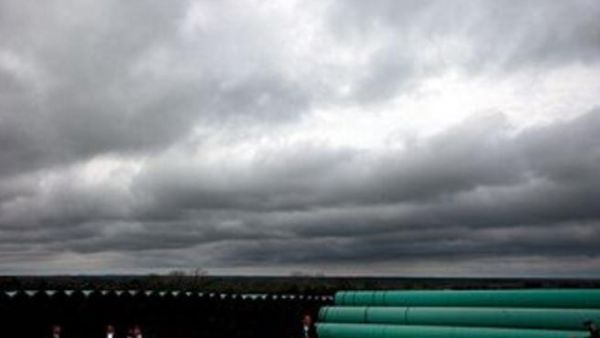Moving to natural gas will save the country about $1 billion while protecting the environment and enhancing energy supply security, Energy and Water Minister Gebran Bassil said Friday.
Speaking at an international workshop on natural gas at the American University of Beirut, Bassil underscored the importance of devising an energy policy that ensures both economic and environmental sustainability for the country. He added that by relying on gasoline, gasoil and diesel oil, the country was losing $6 billion annually, or 15 percent of the national GDP.
“We should gradually move to natural gas, at much lower production costs, so we can move from a services economy that promotes clientelism to one that is self-reliant and productive,” Bassil said.
Switching to natural gas would ensure security of energy supply as it would help diversify the energy mix, the minister said. “Moreover, natural gas is more environmentally friendly and much cheaper than fuel oil. A switch would produce more than $1 billion in savings,” Bassil said.
The minister also spoke about the results of the latest offshore surveys which indicate a high presence of hydrocarbons, especially natural gas. He noted that the country was ready for the next phase of attracting construction companies, and has already prequalified 19 international companies in this sector.
The government has already prepared a “flexible and protective” law for investors and the nation, and is ready with quality surveys and studies, as well as terms of reference, he added.
“The use of natural gas may be the cornerstone for our energy strategy for the country,” he said. “AUB would be the best place to promote and fight for the new Lebanon.”
AUB president Peter Dorman highlighted the importance of interdisciplinary research and energy studies in AUB’s strategic academic goals.
“We are all impacted by energy issues,” he said. “By working together, utilizing the research acumen of academics, the hands-on experience of professionals, and the will of the government, we can reach our goals.”
Farouk al-Kassem, president of Petroleum a.s. and a former adviser to the Norwegian Industry Ministry who was instrumental in developing the Norwegian Petroleum Directorate, spoke of the challenges ahead for the petroleum sector worldwide and in Lebanon. “The good news is that Lebanon has made an excellent start and has a historic chance to develop its energy sector,” he said.
Kassem also warned that field development in deep water is technologically demanding and “only giant discoveries are likely to be of commercial interest.” Kassem also proposed that maintenance operations should be conducted by specially trained local personnel and suggested that a sovereign investment fund be created to collect proceeds from petroleum activities in order to help future generations.








